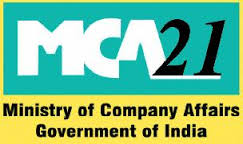 Inactive Companies, Vanishing Companies, Shell Companies, Multiple Companies registered under the same address and Companies without proper Registered Offices operating have all been a problem with the Indian regulatory framework which have significantly hampered the ability of the MCA to strike out against errant Companies
Inactive Companies, Vanishing Companies, Shell Companies, Multiple Companies registered under the same address and Companies without proper Registered Offices operating have all been a problem with the Indian regulatory framework which have significantly hampered the ability of the MCA to strike out against errant Companies
In one master stroke, the MCA has introduced a new rule where Companies have to tag and identify themselves as being ACTIVE. It is interesting and reassuring to note that the parameters prescribed in the form for such identification are super comprehensive to establish existence as well as the level of key compliances. With such kind of Big Data with the MCA, errant promoters need to get ready for some difficult situations.
The Ministry of Corporate Affairs has amended Section 469 of the Companies Act, 2013.
The Amended Rules are :
These rules may be called the Companies (Incorporation) Amendment Rules, 2019.
These rules will come into force with effect from 25th February 2019.
The form needed to file for Companies (Incorporation) Amendment Rules, 2019 is e- Form ACTIVE (FORM NO. INC.22A).
The FAQ’s below will help you to appreciate this new rule better
1. What is the new rule introduced in the context of the Companies Act 2013 ?
A rule pertaining to Active Company Tagging Identities and Verification has been incorporated as Rule 25A in the Companies (lncorporation) Rules, 2014 and is available on http://www.mca.gov.in/Ministry/pdf/CompaniesIncorporationAmendmentRules_21022019.pdf
2. What does this Rule mean ?
This rule means that all Companies have to fill out a Form called “e-form ACTIVE”
3. What is the expansion of the term ACTIVE ?
Active Company Tagging Identities and Verification
4. What is the effective date of the said rules ?
They shall come into force with effect from 25th February, 2019
5. Which Companies are expected to file the above form ?
All Companies incorporated on or before 31 Dec 2017 are required to file this form
6. By when is this form needed to be filed ?
This form is required to be filed on or before 25.04.2019
7. What are the main contents of this Form ?
The main contents are the details of Registered Office, Directors, Statutory Auditors, Cost Auditors and Key Managerial Personnel
8. Which are the companies which will be unable to file the above mentioned form?
Any company which has not filed its due financial statements under section 137 or due annual returns under section 92 or both with the Registrar shall be restricted from filing e-Form-ACTIVE, unless such company is under management dispute and the Registrar has recorded the same on the register
9. Which are the companies which need not have to file the above mentioned form?
Companies which have been struck off or are under process of striking off or under liquidation or amalgamated or dissolved, as recorded in the register, shall not be required to file e Form ACTIVE
10. What are the consequences of non-filing the said forms?
In case a company file the said form, the Company shall be marked as “ACTlVE-non-compliant” on or after 26th April, 2019 and shall be liable for action under sub-section (9) of section 12 of the Act
Sec 12(9) :
If the Registrar has reasonable cause to believe that the company is not carrying on any business or operations, he may cause a physical verification of the registered office of the company in such manner as may be prescribed and if any default is found to be made in complying with the requirements of sub-section (1), he may without prejudice to the provisions of sub-section (8), initiate action for the removal of the name of the company from the register of companies under Chapter XVIII.
11. In case a Company fails to meet the target date, then what are the consequences if there is going to be a delayed filing?
Consequence 1 : The following event based forms cannot be filed
(i) SH-07 (Change in Authorized Capital);
(ii) PAS-03 (Change in Paid-up Capital);
(iii) DIR- 12 (Changes in Director except cessation);
(iv) INC-22 (Change in Registered Office;
(v) INC-28 (Amalgamation, de-merger)
12. In which case a company will be unable to file form INC-22A?
In the following situations, the company will be unable to file the form INC-22A:
i. DIN of any director is de-activated due to non-filing of DIR-3KYC.
ii. Any Director is disqualified under Section 167.
iii. Annual filing for the financial year 2017-18 is not done.
iv. Company has not appointed CS (Company Secretary) if paid up capital is 5 crores or more
v. KMP is not appointed as per the requirements of the Companies Act, 2013
vi. The Statutory Auditor is not appointed as per Section 139 of the Companies Act, 2013
To file the form INC-22A. companies are required to remove the above-mentioned non-compliances.
Consequence 2 : Penalty for delayed filing
Where a company files “e-Form ACTIVE”, on or after 26th April’ 2019, the company shall be marked as “ACTIVE Compliant”, only on payment of fee of ten thousand rupees.
 With a spate of corporate irregularities coming to the fore, the Centre has decided to make disclosure norms more stringent. Corporate India is now required to submit details of transactions involving the receipt of money or loans taken by them, which are otherwise not considered deposits.
With a spate of corporate irregularities coming to the fore, the Centre has decided to make disclosure norms more stringent. Corporate India is now required to submit details of transactions involving the receipt of money or loans taken by them, which are otherwise not considered deposits.


